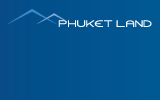Further Reading:
Buyer Security when Buying a House Off-plan

Eduad, who has by his own admission been studying Phuket property market for some time wrote "On Phuket most often the (foreign) potential buyer is offered a package consisting of "a piece of land with a stunning view, plus a pre-designed house, all in one price. The Land Lease is registered only upon completion of the construction of the house, meaning at such time that everything (Land Lease of 30 years plus house) has been fully paid for; if the developer goes bankrupt before that time, the "buyer" will have virtually no recourse at all. I have also seen alternatives using offshore holding companies; Is there a better way to proceed."?
The format of sales structure you describe has been and to an extent remains very typical of the way that traditional Thai developers have sold their product (whether by lease to foreigners or more typically by freehold to Thais) - though to be fair some of them also offer a finance option that means that only 40% is paid by the buyer and the balance picked up by the banks on transfer of title. This format offers great security to the developer but as you correctly point out, next to none to the purchaser.
You will find however that increasingly in Phuket, developers that have foreign management or are targeting a more sophisticated foreign buyer are offering a system of purchase that almost eliminates this exposure to the developer - in which the sales contracts call for a small initial deposit and then before construction starts the balance of full payment for the land component of the purchase (or lease) price concurrent to transfer of land ownership or registration of lease. Payments for construction of the new home would then follow a series of incremental payments that were directly related to the progress of the construction. In this way exposure to the developer is very limited and the risks for the purchaser very small.
For all it's security there are two minor, though in the writers view acceptable, downsides to this approach over the more traditional one. Firstly the buyer will have to pay the price of the land before his villa construction starts, negatively effecting his cash flow requirements during construction. The second is a risk for the developer of buyer default in two primary areas 1) that buyers are going to try to build a home that falls outside the parameters intended within the project or 2) be unable to complete the construction of their homes, potentially leaving the project as a bit of a building site for the other purchasers. For this reason there will usually be some sort of default / buy back clause that can be exercised if the purchaser defaults in this way.
On the issue of developers who offer an interest in a Thai property by means of an interest in an offshore holding company, this in my view is just so much smoke and mirrors. Let's be honest, there are restrictions and complications to the manner in which a foreigner can hold interests in a property in Thailand. Putting an offshore holding company between you and the property has not removed that complication (merely hidden it) and in the unlikely event there was to be a complication with your ownership structure that needed resolving in the future, you would find that you were two steps away from the problem with no direct recourse to try to solve the problem. This is way to complex and indirect for such a long term relationship as immovable property.
In conclusion there are two key principles that should be kept in mind when purchasing /constructing a home in Phuket (or anywhere else for that matter). One ; as nearly as is possible take registered title or possessory rights in fair exchange for each payment that you make. Two ; Notwithstanding the restrictions under local laws, keep your relationship with the property being purchased/leased as direct as is possible.


